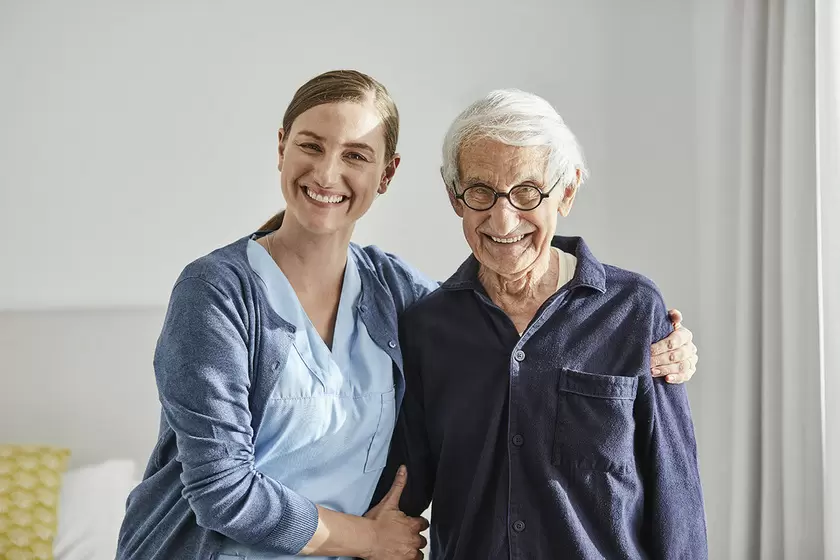
When you reach retirement age, you’ve spent most of your life caring for loved ones and putting others ahead of yourself. Though “self-care” is relatively new, it is essential to preserving your health as you age.
Self-care is a term that is frequently linked with pampering, relaxing, and leisurely activities, but it is much more than that; it is an umbrella term for all of the ways you can improve your health and well-being. The World Health Organization explains self-care as the capacity of individuals, families, and communities to promote health, prevent disease, maintain health, and manage illness and disability with or without the help of a healthcare provider.
Some of the ways you can exercise self-care is through gratitude and positivity. This can help reduce tension and anxiety while improving your mood and happiness. You can boost your drive and confidence by focusing on positive results. Gratitude is the act of expressing thankfulness for the positive things in your life, such as loved ones, excellent health, or a beautiful day. Keep reading for tips on how to practice gratitude and self-care;
Tips for Practicing Self-care
Spend Some Time Outside
Connecting with nature can be like a salve for the spirit – breathing in fresh air, feeling the warm sun on your face – and is a terrific approach to practice self-care. Try calming, refreshing outdoor activities such as walking in the forest, by the sea, or in a garden.
Socialize
Keeping a social circle of loved ones is an essential element of the human experience, so it stands to reason that it should be incorporated into your self-care regimen. Make time to see and interact with friends and family regularly to combat depression, release endorphins, and improve your mood.
Make Exercise a Priority
Staying healthy is beneficial to both your body and mind. It keeps your body functioning correctly and feeling healthy and can also keep your mind bright and raise your mood. Making exercise a priority may be a terrific investment in self-care, whether you prefer swimming, fitness programs like yoga, or simply walking your dog.
Maintain Hydration
Hydration is essential for your body to function correctly; it keeps your mind sharp and can even affect your mood. As part of your self-care regimen, drink the required quantity of water daily – roughly 3.7 liters for men and 2.7 liters for women.
How to Practice Gratitude as a Form of Self-care
Keep a Gratitude Journal
Take a few minutes at the end of each day to reflect on what transpired that day for which you are grateful. Take quick notes or write about how this encounter or event affected you. Take note of everything that moves you; it could be as simple as a day with less arthritic pain or as grand as the chance to see a family member who lives a long distance away.
Follow the “Three Things” Pattern
Consider setting aside some time daily to list three things you are thankful for, even if you choose not to write anything down. Give yourself some time to truly appreciate the joy and gratitude these memories offer.
Pay Attention to What Makes You Happy
The weight of a favorite blanket, a cold breeze, the warmth of the sun, the sound of a loved one’s voice on the phone, the sight of fall leaves outside your window—all of these small pleasures can be the foundation of a daily practice of gratitude. Embrace the wonders and singular experiences that each of your five senses offers. This meditation can help you find happiness in life’s little things again and provide comfort, calm, and clarity during trying times.
Give Back in Any Way You Can
Giving back is one of the best ways to express your thanks. This could include making a charitable donation or volunteering with a local community organization. Engage in activities that offer you a sense of purpose and allow you to connect with people.
How to Use Positivity as a Form of Self-care
Social connections: Seniors can benefit from a solid support system by developing and sustaining relationships with friends, family, and community members. Participating in social activities and group events can increase their sense of belonging and encourage positive thinking.
Emotional assistance: Seniors require emotional support as they face the obstacles of aging. Counseling or support groups can provide a secure area for people to vent their emotions, discuss their experiences, and learn valuable insights.
Wellness programs: By emphasizing physical health, regular exercise, a good diet, and stress management strategies, wellness programs designed especially for seniors help participants stay positive.
Educational opportunities: Seniors can develop a sense of purpose and fulfillment by taking up new hobbies or learning new skills. In addition to offering cerebral stimulation, participating in lifelong learning activities like seminars or classes promotes optimistic thinking.
Wrap-up
At Sequoia Senior Solutions, we support elders in leading an engaged and fulfilling life by fostering deep connections with the community and enabling them to lead active lifestyles. Besides aiding with household chores, transportation, and everyday tasks, our caregivers prioritize establishing connections, encouraging candid conversations, celebrating ideas, and consistently going above and beyond for their customers.
Our caregivers are intensely interested in providing care and genuinely experience happiness, gratitude, and pleasure when assisting others. Many of our caregivers come to us with the motivation to help individuals in need stemming from their experience caring for a loved one.